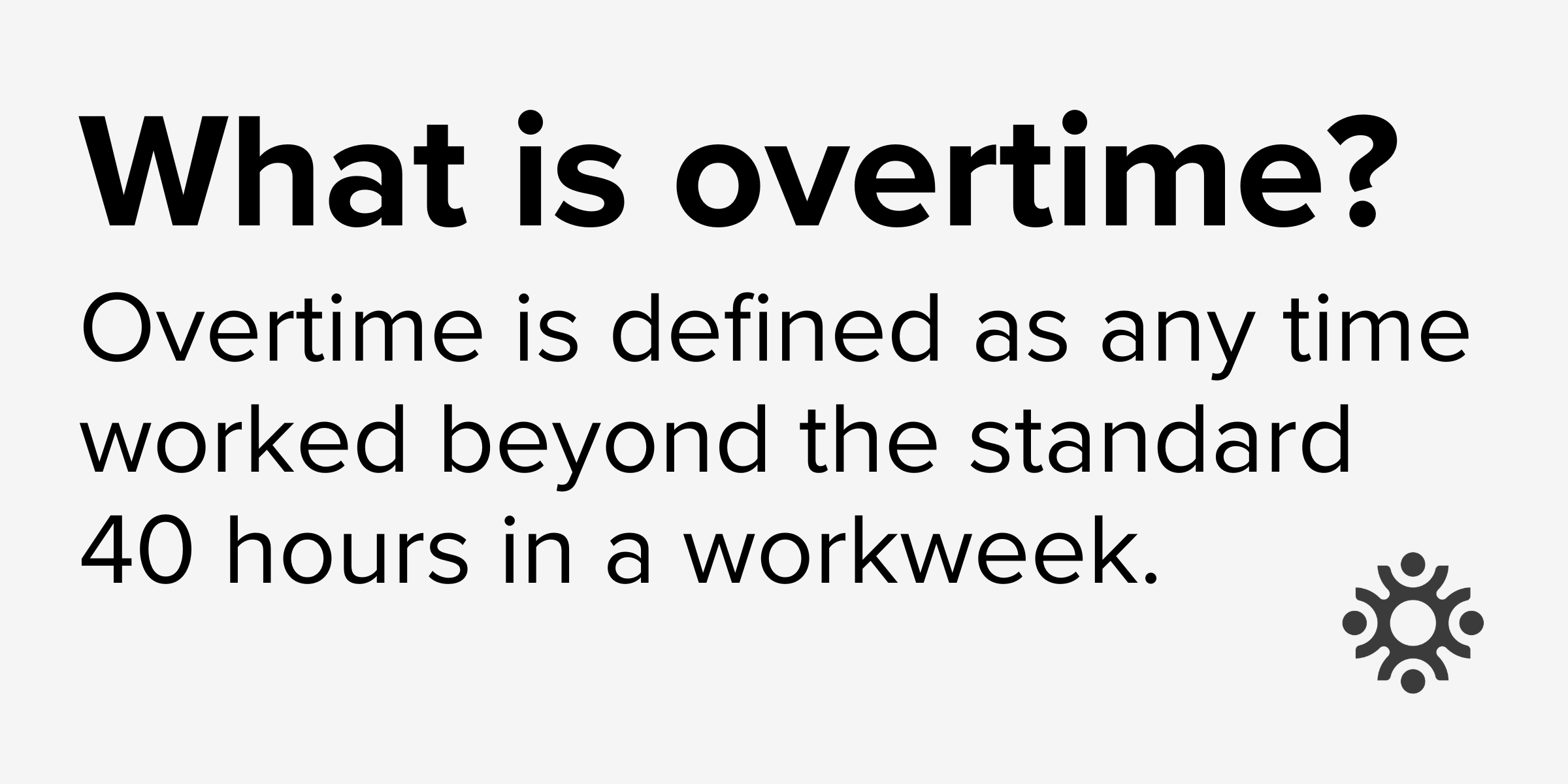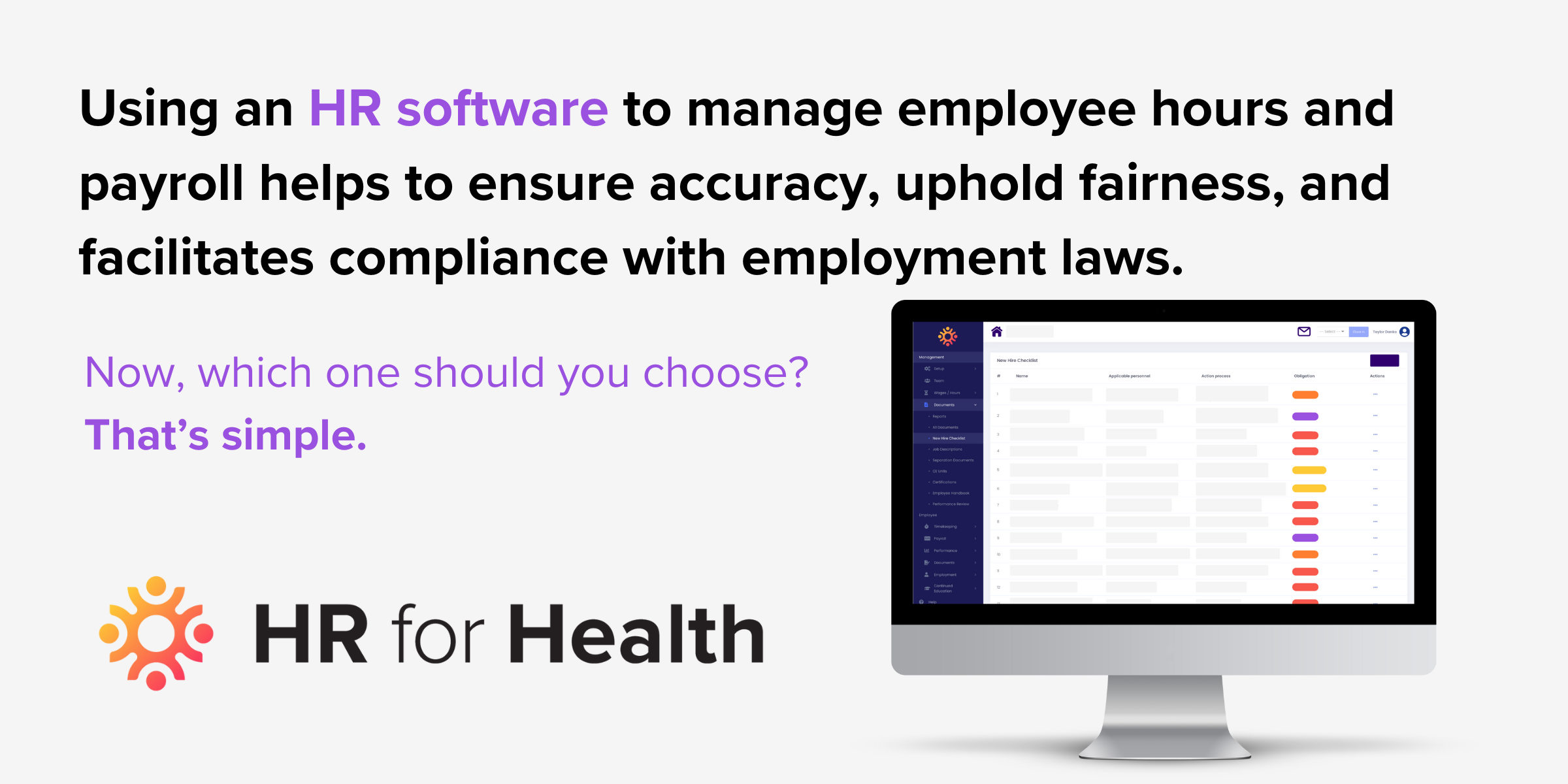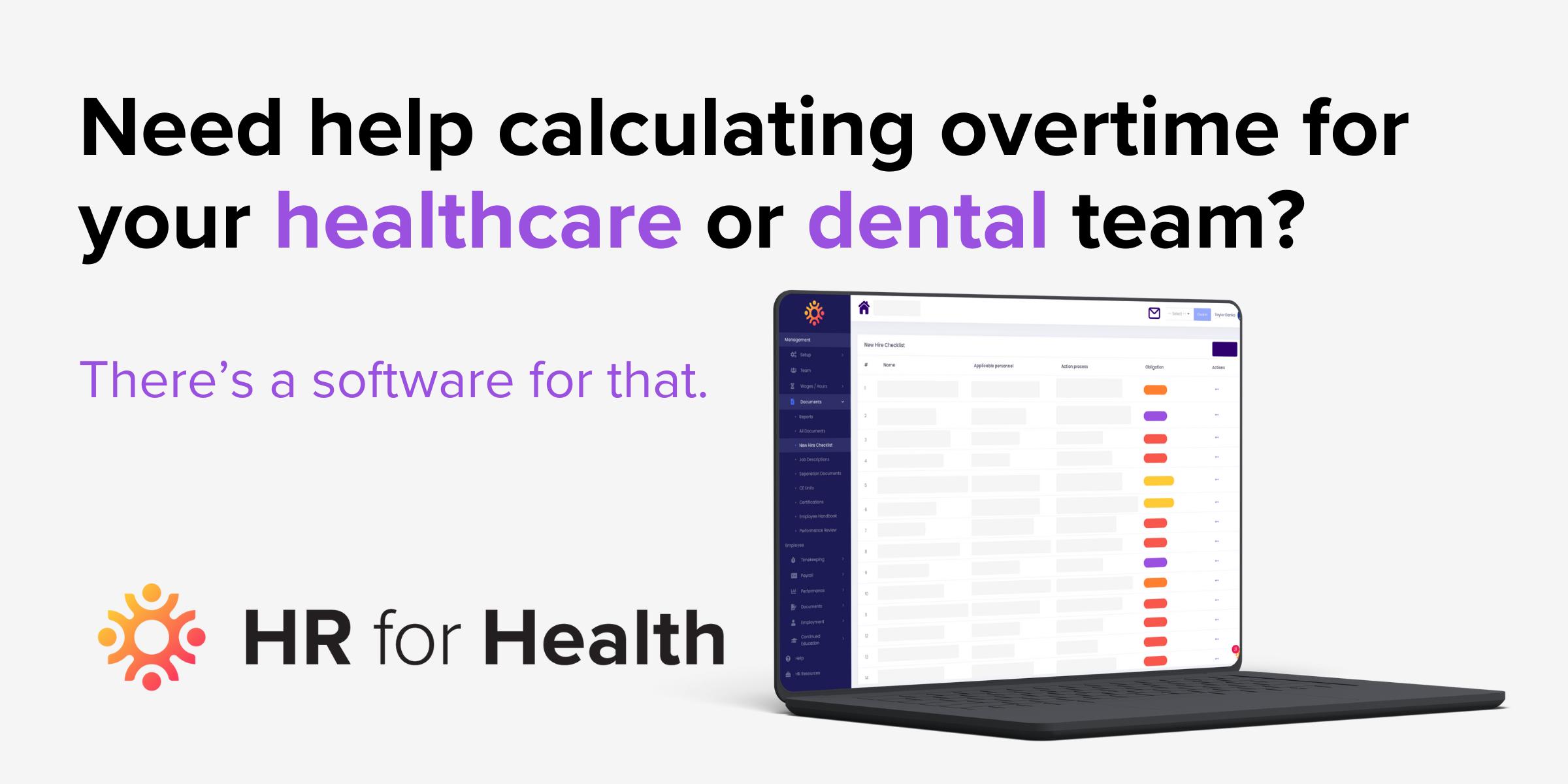Overtime is defined as any time worked beyond the standard 40 hours in a workweek. This entails that any hour worked beyond the limit is considered as overtime and, as such, should be compensated differently from regular work hours.

The Landscape of Overtime: Statistics and Facts
According to the Bureau of Labor Statistics, more than 80 percent of full-time wage earners worked some amount of overtime in the past calendar year. Even more astonishing is the fact that, on average, full-time employees in the United States work 8.5 hours in a day, which totals to about 42.5 hours in a week—2.5 hours more than the regular working hours mandate.
Understanding Overtime Pay
Overtime pay is essentially a higher pay rate for hours worked beyond the 40-hour workweek limit. The Fair Labor Standards Act (FLSA)—which establishes minimum wage, overtime pay, recordkeeping, and youth employment standards—a stipulates that overtime must be paid at a rate of at least one and a half times the regular rate of pay.
In other words, if an employee is paid $12 per hour, they must be paid at least $18 for every hour worked over 40 hours in a calendar week. The FLSA does not require employers to pay overtime on weekends or holidays unless the employee works more than eight hours in a day or 40 hours in a week.
Federal Rules for Overtime
The FLSA primarily sets the federal overtime rules. According to the FLSA, non-exempt employees must receive overtime pay for hours worked over 40 in a workweek at a rate not less than time and one-half their regular pay rates.
The FLSA also sets the rules for overtime pay for exempt employees. Exempt workers are not eligible for overtime pay and must be paid a salary that is at least twice the state minimum wage (or $455 per week, whichever is higher). The FLSA also requires that employers keep accurate records of hours worked, wages paid, and other important information.
Exemptions
Not everyone automatically qualifies for overtime. Certain “exempt” employees, particularly those in executive, administrative, and professional jobs, may not be entitled to overtime pay under federal law. This classification is comprehensive and depends on factors such as salary level, salary basis, and the nature of the employee’s job duties.
Some examples of exempt employees include: Salespersons who earn commissions only (no base salary) executives and administrators who make at least $455 per week, and professionals (doctors, lawyers, etc.) who earn at least $455 per week.
FLSA and Its Say on Overtime
The FLSA doesn’t limit the number of hours that an employee can work—only that overtime pay must be provided at a rate of at least one and a half times the worker’s normal wage for any amount of time worked beyond 40 hours in a workweek.
What Overtime is Covered?
All hours worked over 40 in a workweek are covered, i.e., eligible for overtime pay under FLSA, unless the employee falls under the exempt category.
Why is this Important Information for Dental and Healthcare Workers?
This is crucial information for dental and healthcare workers due to the irregular, often lengthy hours required in these fields. Overtime rules affect compensation, and understanding these rules can significantly affect workers’ rights and employer responsibilities.
An Overview of Overtime Laws by State
States are allowed to impose more stringent rules than the ones mentioned in FLSA. California, for instance, requires employers to pay double the employee’s regular wage for all hours worked beyond 12 in any workday and for all hours worked beyond eight on the seventh consecutive day of work in any workweek.
Overtime Rules and Laws in California
In California, overtime laws are distinct and often more beneficial for employees compared to federal overtime laws. They reaffirm worker rights by ensuring rightful compensation for long work hours.
Overtime Pay Rates
In California, non-exempt employees are entitled to overtime pay in the following situations:
Time and a half (1.5 times the regular rate) is applicable for more than 8 hours of work in a workday or more than 40 hours of work in a workweek.
Double time (2 times the regular rate) is paid for more than 12 hours of work in a single workday and for work beyond 8 hours on any 7th day of a workweek.
Seventh Day Overtime
Unique to California, the seventh consecutive day of work in a workweek requires that the first 8 hours be compensated at the time and a half rate. Any work beyond that is paid at double time.
Exemptions
Like the FLSA, specific employees in executive, administrative, or professional roles with a minimum salary of twice the state’s minimum wage for full-time employment are considered “exempt” and are not entitled to overtime pay.
Essential Protections
California state law protects employees from being terminated or faced with negative actions for refusing to work more than 72 hours in a week.
In California, employers are also required to provide a 30-minute meal break after five hours of work (unless the workday is completed in six hours or less) and a 10-minute break for every four hours worked.
Penalties for Employers Violating California’s Overtime Laws
Employers who violate California’s overtime laws are subject to pay the employee the unpaid overtime wages, interest on those wages, and legal fees the employee accrues in seeking to receive the unpaid overtime.
Understanding overtime law, notably in states like California where the rules differ slightly, is critical for employees and businesses alike. Ensure you are knowledgeable about these regulations to protect your rights and maintain the best practices.
The Importance of Seeking Professional Help When Dealing with Overtime
Dealing with overtime matters is not as simple as it may seem. It’s a multilayered issue that can heavily impact both employees and employers. Here’s why seeking professional help can be crucial:

Proper Understanding of Laws
Overtime laws are complex and frequently changing. Professional advisors can help both employees and employers understand their rights and obligations, ensuring compliance with federal and state laws.
Calculating Accurate Overtime Rates
Different states may follow different rules for overtime pay. Professionals can accurately calculate the right pay rates, avoiding potential legal issues.
Handling Exemptions
Dealing with exempt employees regarding overtime can be tricky. Professionals are well-versed in the various job classifications and nuances associated with overtime exemptions.
Navigating Legal Disputes
In the event of disputes or lawsuits, having a professional rendering help is invaluable. They can represent and guide you through these challenging processes.
Implementation of Knowledge
For employers, professionals can assist in updating company policies and conducting training sessions to ensure all managers and employees fully understand overtime rules.
Assurance of Compliance
Utilizing HR software can maintain compliance, track overtime, and ensure correct payment. Professionals can recommend the best software tailored to specific business needs.
In conclusion, seeking professional assistance for handling overtime issues not only ensures compliance with labor laws but also protects the rights and interests of both parties involved. By doing so, you’re creating a healthy work environment and preserving the integrity of your business.
HR Software: Tracking Overtime and Its Importance
HR for Health, for instance, helps practices manage their employees’ hours seamlessly by tracking overtime and calculating pay correctly according to the applicable rules and jurisdictions.
Using an HR software to manage employee hours and payroll helps to ensure accuracy, uphold fairness, and facilitates compliance with employment laws. Without a trustworthy way to track time worked, employers may under- or over-pay workers, leading to potentially costly legal disputes. A reliable HR software keeps track, freeing employers to focus more on growth and patient care than on payroll dilemmas.
In summary, understanding overtime and its implications is essential for both employers and employees. And with the help of a reliable HR tool, navigating overtime can be a headache-free experience, leaving businesses to focus on their core objectives.
Common Questions About Overtime
1. What is overtime?
Answer: Overtime refers to any time worked beyond the standard 40 hours in a workweek.
2. How is overtime pay calculated?
Answer: Generally, overtime pay is calculated at a rate of one and a half times the employee’s regular rate of pay for all hours worked over 40 in a workweek.
3. Who qualifies for overtime pay?
Answer: Non-exempt employees qualify for overtime pay. This typically doesn’t include executive, administrative, and certain professional employees who meet specific job duties and salary requirements.
4. Can my employer refuse to pay me overtime?
Answer: Under the Fair Labor Standards Act (FLSA), employers are required to pay non-exempt employees overtime for hours worked beyond the 40-hour workweek.
5. Can my employer require that I work overtime?
Answer: Yes, in general, an employer can typically require employees to work overtime and can terminate or discipline employees who refuse to work overtime.
6. Are there certain states with different overtime laws?
Answer: Yes, some states have more stringent overtime laws than the federal standard. California, for example, imposes double time in certain cases.
7. How does overtime work for salaried employees?
Answer: Salaried employees are classified as exempt or non-exempt from overtime. If they’re exempt, meaning their salary is at least $684 per week, they do not receive overtime pay. Non-exempt salaried employees, on the other hand, are entitled to overtime pay.
8. Does overtime apply to holiday and weekends?
Answer: Overtime isn’t contingent on whether work is performed over a holiday or weekend. It’s calculated based on total hours worked in a given workweek.
9. What happens if I believe my employer is not paying me the required overtime?
Answer: You can file a complaint with the U.S. Department of Labor’s Wage and Hour Division or consult with an employment law professional.
10. Are part-time employees eligible for overtime?
Answer: Yes, if a part-time employee, regardless of non-exempt or exempt status, works more than 40 hours in a workweek, they are eligible for overtime pay.



